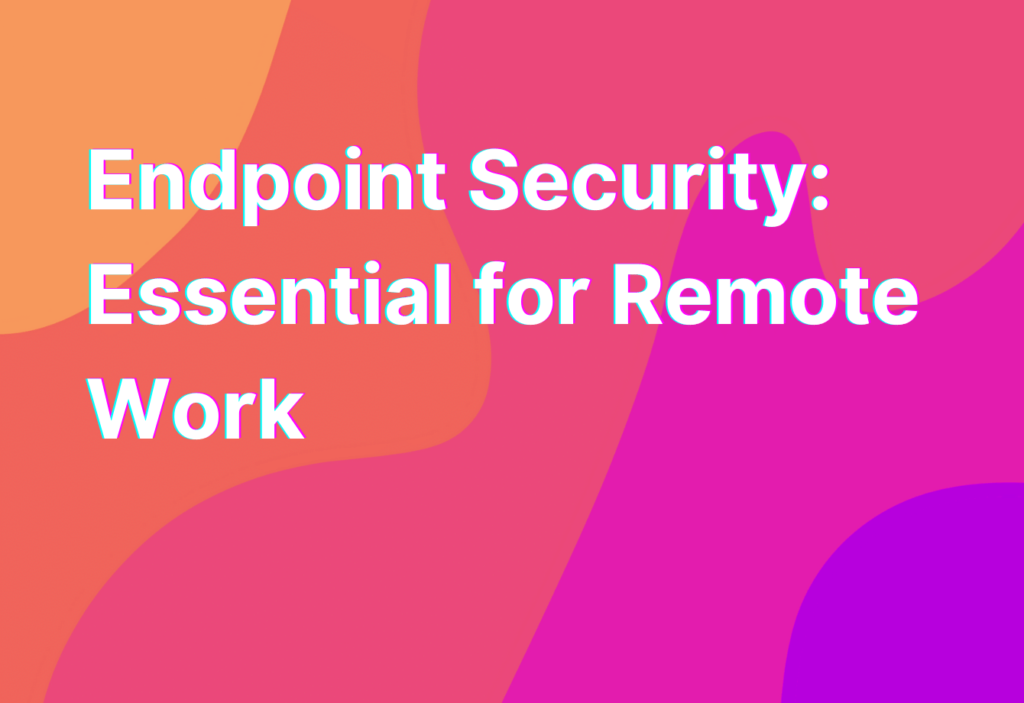Endpoint Security: Essential for Remote Work
Hey there, remote workers! It’s Ashley, your friendly remote work advocate, here to talk about a topic that is crucial for all of us: endpoint security. In this digital age, where remote work is becoming the norm, it’s more important than ever to ensure the security of our devices and data. So, let’s dive in and explore why endpoint security is essential for remote work.
What is Endpoint Security?
Before we get into the nitty-gritty details, let’s start with the basics. Endpoint security refers to the protection of the various endpoints, or devices, that connect to a network. These endpoints can include laptops, smartphones, tablets, and even IoT devices. The goal of endpoint security is to safeguard these devices from cyber threats and unauthorized access.
Now that we have a clear understanding of what endpoint security is, let’s take a look at why it’s so important for remote work.
1. Protecting Sensitive Data
As remote workers, we often deal with sensitive information, such as client data, financial records, and proprietary company information. Without proper endpoint security measures in place, this data is at risk of being compromised. A single breach can have severe consequences, including financial loss, damage to reputation, and even legal issues.
By implementing robust endpoint security solutions, such as firewalls, encryption, and multi-factor authentication, we can significantly reduce the risk of data breaches and keep our sensitive information safe.
2. Preventing Malware Attacks
Malware, short for malicious software, is a significant threat to remote workers. It can come in various forms, such as viruses, ransomware, and spyware, and can wreak havoc on our devices and networks. Without proper endpoint security measures, we are more susceptible to these attacks.
One effective way to prevent malware attacks is by using antivirus software. This software scans our devices for any malicious programs and removes them before they can cause any harm. Additionally, keeping our operating systems and applications up to date with the latest security patches is crucial in preventing malware attacks.
3. Securing Remote Access
Remote work often requires us to access company resources and networks from outside the office. While this flexibility is fantastic, it also introduces security risks. Without proper endpoint security measures, remote access can become a gateway for cybercriminals to infiltrate our systems.
One way to secure remote access is by using a virtual private network (VPN). A VPN creates a secure connection between our device and the company’s network, encrypting the data transmitted between the two. This ensures that even if someone intercepts the data, they won’t be able to decipher it.
4. Enhancing Device Management
Endpoint security goes beyond protecting our devices from external threats. It also helps us manage our devices more effectively. With the rise of bring-your-own-device (BYOD) policies, where employees use their personal devices for work, it’s crucial to have proper device management in place.
Endpoint security solutions often include features like remote device wiping, which allows us to erase all data from a lost or stolen device to prevent unauthorized access. Additionally, these solutions can help us enforce security policies, such as password requirements and device encryption, to ensure that our devices are secure.
5. Educating Remote Workers
While endpoint security solutions play a significant role in protecting our devices and data, it’s essential to remember that we, as remote workers, also have a responsibility to stay informed and educated about cybersecurity best practices.
Regularly updating our knowledge about the latest threats, practicing good password hygiene, and being cautious of phishing attempts are just a few ways we can contribute to maintaining a secure remote work environment.
Wrapping Up
Endpoint security is not something to be taken lightly, especially in the world of remote work. By protecting our devices and data, we can ensure a safe and secure work environment, free from cyber threats.
Remember, remote workers, your security is in your hands. Stay informed, implement robust endpoint security measures, and always be vigilant. Together, we can create a secure remote work landscape.
For more tips on remote work security, check out this link about essential firewall tips for remote work.


